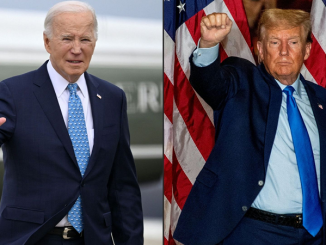
Tags : Donald Trump, Europe, USA, Israël, Gaza, Ukraine, Russia,
By Khattar Abou Diab
The European Union and other global players fear the impact of the return of « the man with golden hair » to the international stage. The EU is particularly apprehensive about the possibility of Donald Trump triggering a destructive trade war.
Trump’s potential return to the White House, along with his radical rhetoric, mirrors recent far-right electoral successes in Europe. However, “Trump Effect 2” is shaking the EU and transatlantic relations.
Thus, could the European Union adapt to this American shift while addressing its own structural issues, reducing its strategic dependence on the U.S., and establishing itself as a new geopolitical force?
The Trump Shock Stirs European Fears
Trump’s victory sends shockwaves through Europe, a continent already adrift due to its international positioning and its handling of the Ukraine war and economic difficulties.
It’s worth noting, however, that the EU survived the first Trump administration and may adapt to a second. EU leaders in Brussels are reluctant to adopt a negative stance toward the next American administration to avoid damaging the delicate ties between the two sides. They hope Washington’s commitment to NATO and European security remains strong, though this may depend on Europe’s willingness to increase its defense spending.
In European capitals, there’s concern that Trump’s return could embolden Russian President Vladimir Putin. Consequently, Europe may ask Washington to allow Ukraine to determine the timing and terms of its participation in negotiations while ensuring Kyiv has the necessary means to defend itself.
Concerns extend beyond the Ukraine war to an American unilateralism that might disregard allies’ interests.
With every White House transition, the EU bases much of its foreign policy on Washington’s directions. As Trump approaches his new term, he has pledged a foreign policy focused on disrupting free trade, unilateralism, condemning international organizations, disliking the EU (mainly because it has a trade surplus with the U.S.), deference to powerful autocrats, neglect of Russian influence in Europe, climate change denial, and indifference toward political systems.
The early administration appointments seem to confirm these “Trumpian principles.”
Most European leaders anticipate suffering in the Trump era, which could deepen political divisions across the continent. However, this won’t include Trump’s friend, Hungarian President Viktor Orbán, who shares his views, or Italian Prime Minister Giorgia Meloni, who may try to act as a mediator between the U.S. and EU institutions.
In general, the EU and other global actors fear the shock of “the man with golden hair” returning to the global stage. Trump blames America’s problems on factors like immigration, globalization, and Washington’s foreign commitments.
Trump’s commitment to a strong military might not ensure the U.S. remains the world’s sole superpower, leaving that as his challenge. As for Europe’s concerns, they can’t be resolved without addressing its own structural crisis and transforming into a robust geopolitical player.
Europe’s Far Right and the Trump Model
In Trump’s world, conservative and far-right parties in Europe may gain ground by leveraging the effects of his return to bolster their positions or score new victories.
Trump’s re-election would likely impact European domestic politics profoundly, potentially empowering far-right populist parties that share Trump’s anti-liberal and nationalist agendas, such as his “Make America Great Again” slogan.
Trump’s return comes at a troubling time for Europe, which has witnessed worrying gains by nationalist far-right groups in countries like the Netherlands, Hungary, France, Spain, Austria, Germany, and Italy over the last three years.
In this environment, the EU fears that Trump’s return to the White House could inspire a surge in far-right nationalist movements, viewing the future American president as a role model. Immigration and Europe’s Christian roots are sure to spark intense debate.
Hungarian President Viktor Orbán, an outspoken nationalist, declared that “Trump’s victory is necessary for the world.” Similarly, Marine Le Pen has praised the new Trump era as a “new age … of constructive international cooperation.” Le Pen, who aspires to win the French presidency in upcoming elections, likely sees Trump’s experience as something she could replicate in Europe given France’s weight and influence within the EU.
The EU fears Trump might trigger a destructive trade war, especially at a time of European weakness due to an unstable economy, a German crisis, and French unrest. During his first term, Trump once called the EU “America’s greatest enemy.” This mistrust and past experience may lead Europe to look across the Atlantic with deep concern … and apprehension.
Khattar Abou Diab is a French-Lebanese political scientist, expert on Islam and the Middle East, and Director of the « Geopolitical Council – Perspectives. » X: @abou_diab
Note: The views expressed in this column are the author’s and do not necessarily reflect the views of Arab News.
Arab News en Français, 20/11/2024
#Trump #EtatsUnis #Europe #Ukraine #Russie #Israël #Gaza


Soyez le premier à commenter